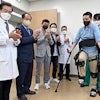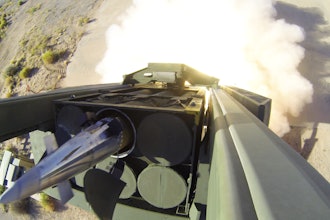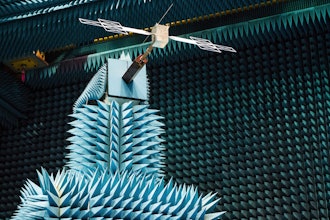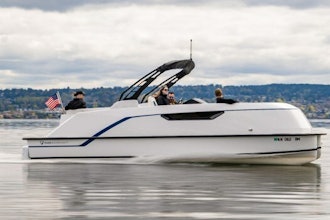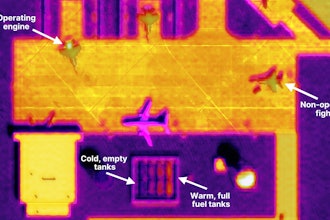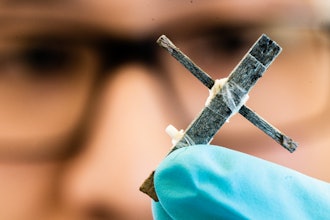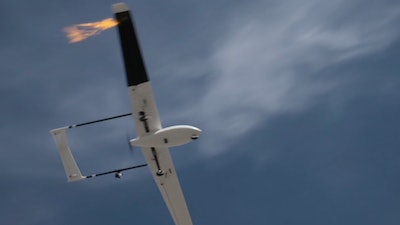
Cambium, a defense and aerospace innovator, successfully completed its contract with the US Naval Air Warfare Center Weapons Division (NAWCWD) in China Lake, Calif. to advance and field-test a next-gen bio-manufactured thermal protection system (TPS) to enhance mission performance and survivability of drones.
The project, which was funded by the Office of Naval Research (ONR), involved the production of an advanced biomaterial and demonstration of its efficacy in fire-in-flight tests designed to simulate the impact of countermeasures on the drone. The wing skin of a cost-effective Group 2 UAV, used by US defense and commercial customers, was replaced down to the structural supports with a prototype wing skin fabricated from biosynthetic composite materials. Using the remote-controlled ignition of an incendiary material, the wing skin was subjected to rapid-onset heat and fire events. Over the course of more than two dozen flights the flame impacts across the length of the wing skin did not lead to vertical or lateral flame spread, a failure in the structural integrity of the wing skin, or any other performance degradations.
Cambium's novel TPS is designed and fabricated to better protect hardware against heat, fire, the rapid-heating impacts from countermeasures — and from severe aerodynamic heating and pressure loads experienced during flight. Existing TPSs are slow to manufacture and severely supply constrained. Cambium is developing alternative TPSs that exhibit similar high thermal stability and mechanical strength characteristics, coupled with easier manufacturing processes and a stable domestic supply chain. Cambium has an active cooperative research and development agreement (CRADA) with NAWCWD focused on the development of next-generation TPS that can be industry certified and integrated into a broad set of high-value defense and aerospace performance systems.
"Biosynthetic composite materials technology can help ensure the US stays at the forefront of technical innovation and development," says NAWCWD Research Department Director Mark Wonnacott. "These materials offer outstanding thermal stability and fire-resistance, which will enable them to be used for a variety of DoD applications. In parallel with recent government investments in biomanufacturing, these types of demonstrations will enable the rapid transition of biotechnology in support of the Warfighter."
"Cambium is on a mission to make high-performance hardware better, faster, cheaper by re-engineering products from the molecule-up to dramatically improve manufacturability," says Cambium Co-founder & CEO. "This project is a perfect demonstration of the application of our technology platform to solving difficult material challenges and we look forward to our ongoing collaboration with NAWCWD on a range of advanced material and application challenges."


